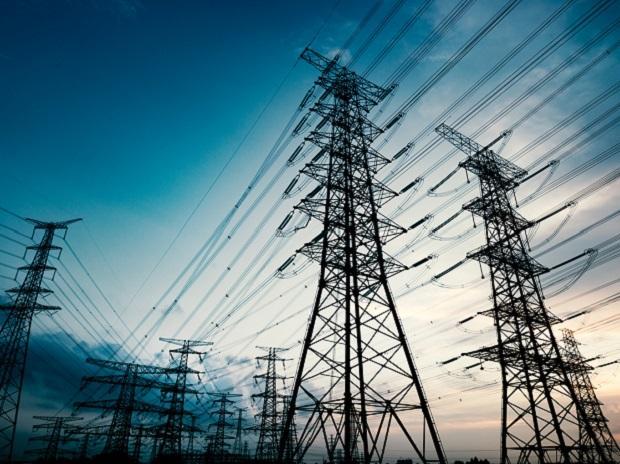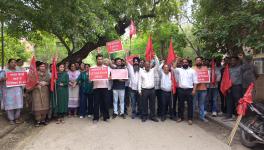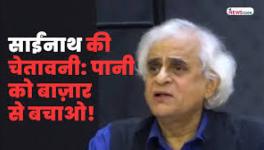Power Engineers Oppose NITI Aayog’s Plan to Privatise Electricity Distribution

Representational Image. Image Courtesy: Business Standard
New Delhi: Power sector engineers and employees have opposed the NITI Aayog’s recommendation in its policy ‘strategy paper’ to privatise the distribution of electricity throughout the country. The central government’s ‘think-tank’ wants to privatise state distribution utilities in urban areas and adopt a franchisee model for rural areas, despite ample evidence of how privatisation in power sector has failed.
The All India Power Engineers’ Federation (AIPEF) — representing more than 1.5 million power sector engineers and employees — has demanded that the government discuss with them the problems plaguing the country’s power sector before any policy is finalised. If any unilateral decision is taken by the government, power sector employees across the country will resort to agitation, said AIPEF on June 12.
The NITI Aayog — in the document which “defines clear objectives for 2022-23” and was released last December — asks for “privatizing state distribution utilities and/or the use of a franchisee model”.
“Discoms may adopt a franchisee model for its retail business in rural areas and stipulate a minimum level of performance parameters, including the use of decentralised generation sources and storage systems for local reliability and resilience”, says the paper, among other measures aimed at privatising the distribution sector entirely.
The AIPEF has time and again pointed out how experiments of privatisation and franchisee system in power distribution have failed — for example, in Odisha and Delhi.
The AIPEF has been mobilising and staging protests against the Electricity (Amendment) Bill — first introduced in 2014 and revised in 2018 — which sought to bring in private companies into the safer aspects of power distribution.
The amendment Bill sought to bifurcate the power distribution into ‘carriage’ (the physical infrastructure) and ‘content’ or the actual sale of electricity to the consumer.
While government companies would set up the infrastructure and literally lay the wires carrying electricity to the consumer, the selling of electricity would be done by multiple private companies competing with each other.
While both Bills lapsed after they could not be passed in the Lok Sabha, the AIPEF said the NITI Aayog’s policy recommendation includes covers all the points that were part of Electricity (Amendment) Bill 2014 & 2018.
Also read: Thousands Of Power Employees Storm Delhi Against Privatisation
The AIPEF has been demanding that the government officially “review” the disastrous impact of the dismantling of the state electricity boards, which was brought in with the Electricity Act 2003.
The Electricity Act 2003 — following the model of ‘unbundling’ promoted by the World Bank — trifurcated the state electricity boards into generation, transmission, and distribution. At present, Kerala and Himachal Pradesh are the only states with integrated state electricity boards.
This trifurcation was done to enable private companies to enter the more profitable aspect of power generation. This was followed by a glut of corporates in the thermal power generation sector. The 2003 Act has also led to the current crisis of non-performing assets (NPAs) in the power sector.
Also read: Power Sector: Looming NPA Crisis Cannot Be Resolved Without Reversing 2003 Reforms
AIPEF chairman Shaliender Dubey said the experiment of unbundling of state electricity boards had failed while the losses of the distribution companies are mounting. He said “unification” is urgently required “to avoid unnecessary wasteful administrative expenditure.”
“After unbundling generation and transmission companies are paying millions of rupees as income tax in name of profit while distribution companies financial position if going from bad to worse every day. The payment of income tax and losses are leading to higher tariff for common consumers,” Dubey said.
Earlier, the AIPEF recommended the setting up of a committee with representatives of all stakeholders (including engineers/employees and consumers) to examine the consequences of the 2003 legislation.
Last year, the power sector employees — under the united platform of the Power Employees’ Joint Action Committee (PEJAC) — had successfully fended off privatisation of power distribution in Uttar Pradesh.
Also read: The Crisis of the Power Sector Reforms – Part I
In the face of an agitation by the workers, the state government had withdrawn the tenders it had floated last February inviting private companies to take over various electricity distribution activities in seven districts.
The AIPEF has already written to Union Power Minister RK Singh seeking a formal discussion on the problems of power sector.
Get the latest reports & analysis with people's perspective on Protests, movements & deep analytical videos, discussions of the current affairs in your Telegram app. Subscribe to NewsClick's Telegram channel & get Real-Time updates on stories, as they get published on our website.
























